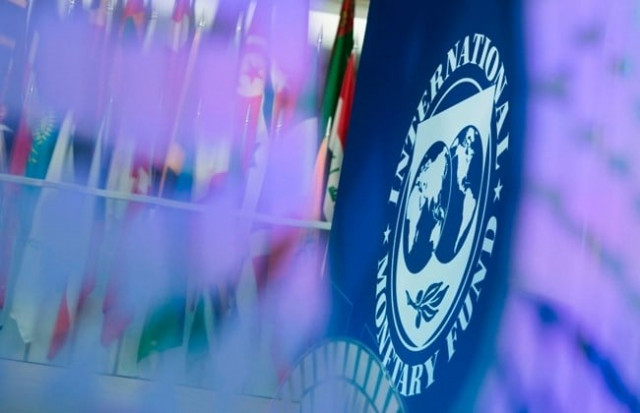Autonomous NEPRA, SBP a must to revive IMF deal
Pakistan will have to amend two laws to meet loan conditions

In a bid to qualify for the third loan tranche of International Monetary Fund (IMF) programme, Pakistan will have to amend two laws to give autonomy to the central bank and legal mandate to the power sector regulator for notifying new electricity prices.
“Amendments to the National Electric Power Regulatory Authority (Nepra) Act and the State Bank of Pakistan (SBP) Act are expected to become prior actions for the approval of second review of the Fund programme,” said Kamran Afzal, special secretary and spokesman for the Ministry of Finance.
These two prior actions are in addition to the two main outstanding issues of new taxation measures and increase in power tariffs, said the finance ministry spokesman.
In an interaction with journalists on Wednesday, Afzal refrained from giving a definite timeline for reaching consensus with the IMF on all the outstanding issues. The consensus is a prerequisite to securing approval of the third loan tranche of roughly $450 million that as per the original schedule had to be approved in February this year.
Pakistan had entered into a $6 billion IMF programme in July last year but the programme derailed after the government refused to introduce a mini-budget and increase power tariffs.
In February, the government had asked the IMF to delay these measures till June. But due to the adverse impact of Covid-19 on the economy, Prime Minister Imran Khan again decided against taking these drastic steps.
According to original schedule of the IMF loan programme, by now Pakistan and the IMF should have begun preparations for the fourth review and the fifth loan tranche. So far, the IMF has disbursed roughly $1.5 billion in two tranches.
To a question about making amendments to the SBP Act and Nepra Act as prior actions instead of retaining them as structural benchmarks, Afzal said that there had also been incidences in the past where the missed structural benchmarks became prior actions.
It was the condition of the IMF under the bailout package to submit Nepra Act amendments in parliament by the end of December 2019 and amendments to the SBP Act in parliament by March 31, 2020.
“The government is in consultation with the IMF on the timing of some of the structural benchmarks,” said the special secretary finance. He said that the IMF and Pakistan were moving towards “some consensus”.
The government is still not in the negotiation phase with the IMF rather the engagements are “advisory” in nature, said the special secretary.
Afzal said that the second wave of Covid-19 had put so many things in a difficult situation. But he said that first signs of economic growth were emerging with the large-scale manufacturing sector growth turning positive.
Nepra amendments
In January this year, the Economic Coordination Committee (ECC) of the cabinet had approved draft amendments to the Regulation of Generation, Transmission and Distribution of Electric Power Act 1997, generally known as the Nepra Act.
The amendments have been proposed to stop the recurrence of circular debt that stood at Rs2.15 trillion by June, including the addition of nearly Rs1.1 trillion during the PTI government’s first two years in power.
However, the problem with the amendments is that the debt, which is piling up because of government’s failure to ensure full recovery of electricity bills and control theft, will be paid by the consumers in the shape of tariffs and surcharges. These proposed amendments, if approved by parliament, carry far-reaching implications for those consumers who regularly pay their electricity bills.
One of the most important amendments has been proposed in Section 31 of the 1997 law that sets new parameters for determination of annual, quarterly and monthly tariffs by limiting the government’s powers to withhold notifications and passing on inefficiencies to the consumers.
The federal government will have to notify the annual tariff within one month and if it fails to do so, Nepra will automatically notify the changes in the official gazette, according to the proposal. In case of quarterly adjustments, the government will have to notify new tariffs within 15 days or else the job will be done by Nepra.
SBP Act
A draft bill prepared by the central bank seeks greater autonomy with no responsibility.
The SBP has proposed that it will be responsible for only price stability and has sought to abolish the dual objective of controlling inflation and supporting economic growth.
The central bank has moved the proposal as part of amendments to the SBP Act of 1956 but the term “price stability” has been kept vague to avoid full responsibility.
Under the existing law, the central bank is responsible for price stability and supporting economic growth. However, it has now proposed that inflation targeting would be its core objective but the amendments fall short of the goal.
The SBP wants the abolition of finance minister-led Monetary and Fiscal Policies Coordination Board, an end to the role of federal government in quasi-fiscal operations, the removal of secretary finance from the SBP board, a five-year secured term for the governor with an option to extend it by another five years and almost no option to remove him before the expiry of the term.
The SBP’s draft bill has also been reviewed by the Cabinet Committee on Legislative Cases (CCLC) where some federal ministers objected to giving unchecked powers to the central bank, a cabinet member told The Express Tribune in April this year.
Published in The Express Tribune, November 13th, 2020.
Like Business on Facebook, follow @TribuneBiz on Twitter to stay informed and join in the conversation.



















COMMENTS
Comments are moderated and generally will be posted if they are on-topic and not abusive.
For more information, please see our Comments FAQ